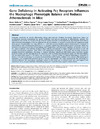Identificador persistente para citar o vincular este elemento:
https://accedacris.ulpgc.es/jspui/handle/10553/75286
| Campo DC | Valor | idioma |
|---|---|---|
| dc.contributor.author | Mallavia, Beñat | en_US |
| dc.contributor.author | Oguiza, Ainhoa | en_US |
| dc.contributor.author | Lopez-Franco, Oscar | en_US |
| dc.contributor.author | Recio Cruz, Carlota Pilar | en_US |
| dc.contributor.author | Ortiz-Muñoz, Guadalupe | en_US |
| dc.contributor.author | Lazaro, Iolanda | en_US |
| dc.contributor.author | Lopez-Parra, Virginia | en_US |
| dc.contributor.author | Egido, Jesus | en_US |
| dc.contributor.author | Gomez-Guerrero, Carmen | en_US |
| dc.contributor.editor | Lutgens, Esther | - |
| dc.date.accessioned | 2020-11-09T16:38:08Z | - |
| dc.date.available | 2020-11-09T16:38:08Z | - |
| dc.date.issued | 2013 | en_US |
| dc.identifier.issn | 1932-6203 | en_US |
| dc.identifier.uri | https://accedacris.ulpgc.es/handle/10553/75286 | - |
| dc.description.abstract | Immunity contributes to arterial inflammation during atherosclerosis. Oxidized low-density lipoproteins induce an autoimmune response characterized by specific antibodies and immune complexes in atherosclerotic patients. We hypothesize that specific Fcγ receptors for IgG constant region participate in atherogenesis by regulating the inflammatory state of lesional macrophages. In vivo we examined the role of activating Fcγ receptors in atherosclerosis progression using bone marrow transplantation from mice deficient in γ-chain (the common signaling subunit of activating Fcγ receptors) to hyperlipidemic mice. Hematopoietic deficiency of Fcγ receptors significantly reduced atherosclerotic lesion size, which was associated with decreased number of macrophages and T lymphocytes, and increased T regulatory cell function. Lesions of Fcγ receptor deficient mice exhibited increased plaque stability, as evidenced by higher collagen and smooth muscle cell content and decreased apoptosis. These effects were independent of changes in serum lipids and antibody response to oxidized low-density lipoproteins. Activating Fcγ receptor deficiency reduced pro-inflammatory gene expression, nuclear factor-κB activity, and M1 macrophages at the lesion site, while increasing anti-inflammatory genes and M2 macrophages. The decreased inflammation in the lesions was mirrored by a reduced number of classical inflammatory monocytes in blood. In vitro, lack of activating Fcγ receptors attenuated foam cell formation, oxidative stress and pro-inflammatory gene expression, and increased M2-associated genes in murine macrophages. Our study demonstrates that activating Fcγ receptors influence the macrophage phenotypic balance in the artery wall of atherosclerotic mice and suggests that modulation of Fcγ receptor-mediated inflammatory responses could effectively suppress atherosclerosis. | en_US |
| dc.language | eng | en_US |
| dc.relation | SAF2009-11794 | en_US |
| dc.relation | SAF2012-38830 | en_US |
| dc.relation | FIS PI10/00072 | en_US |
| dc.relation | RECAVA RD12/0042/0038 | en_US |
| dc.relation.ispartof | PLoS ONE | en_US |
| dc.source | PLoS ONE [ISSN 1932-6203], v. 8 (6), e66754 | en_US |
| dc.subject | 3207 Patología | en_US |
| dc.title | Gene Deficiency in Activating Fcγ Receptors Influences the Macrophage Phenotypic Balance and Reduces Atherosclerosis in Mice | en_US |
| dc.type | info:eu-repo/semantics/article | en_US |
| dc.type | Article | en_US |
| dc.identifier.doi | 10.1371/journal.pone.0066754 | en_US |
| dc.identifier.issue | 6 | - |
| dc.investigacion | Ciencias de la Salud | en_US |
| dc.type2 | Artículo | en_US |
| dc.utils.revision | Sí | en_US |
| dc.contributor.wosstandard | Lutgens, Esther | - |
| dc.contributor.wosstandard | Lutgens, Esther | - |
| dc.identifier.ulpgc | No | en_US |
| dc.contributor.buulpgc | BU-MED | en_US |
| dc.description.sjr | 1,74 | |
| dc.description.jcr | 3,534 | |
| dc.description.sjrq | Q1 | |
| dc.description.jcrq | Q1 | |
| dc.description.scie | SCIE | |
| dc.description.erihplus | ERIH PLUS | |
| item.fulltext | Con texto completo | - |
| item.grantfulltext | open | - |
| crisitem.author.dept | GIR IUIBS: Farmacología Molecular y Traslacional | - |
| crisitem.author.dept | IU de Investigaciones Biomédicas y Sanitarias | - |
| crisitem.author.dept | Departamento de Ciencias Clínicas | - |
| crisitem.author.orcid | 0000-0002-8832-2826 | - |
| crisitem.author.parentorg | IU de Investigaciones Biomédicas y Sanitarias | - |
| crisitem.author.fullName | Recio Cruz, Carlota Pilar | - |
| Colección: | Artículos | |
Citas de WEB OF SCIENCETM
Citations
24
actualizado el 01-feb-2026
Visitas
41
actualizado el 10-ene-2026
Descargas
57
actualizado el 10-ene-2026
Google ScholarTM
Verifica
Altmetric
Comparte
Exporta metadatos
Los elementos en ULPGC accedaCRIS están protegidos por derechos de autor con todos los derechos reservados, a menos que se indique lo contrario.
